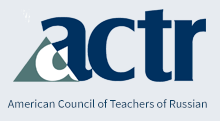Russian Language Journal
Keywords
Media Literacy, Russian Language, Teaching Media, Digital Literacy
Abstract
The rapidly evolving political and cultural landscape of the contemporary world necessitates our continuous reevaluation of the competencies required for effective second language acquisition. As global communication and digital technologies continue to advance, the traditional paradigms of language learning must expand to include critical skills that enable learners to navigate and engage with the multifaceted media environment in the target language. In this context, media literacy emerges as a fundamental component of foreign language education, not only fostering linguistic proficiency but also emphasizing the significant role of analytical capabilities essential for discerning, scrutinizing, and interpreting information and disinformation as presented in various media forms.
Recommended Citation
Evans-Romaine, K., & Klimanova, L. (2023). Introduction to the Special Issue: Issues of Teaching Media Literacy in Russian Language Education. Russian Language Journal, 73(2). https://doi.org/10.70163/0036-0252.1342


